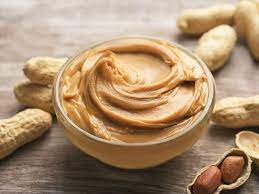There are certain natural methods that some individuals think may help prepone menstruation, but it is important to speak with a healthcare provider before attempting to change your menstrual cycle. Remember that individual outcomes and the efficacy of various approaches can vary. Some people utilize the following natural therapies and lifestyle modifications:
- Exercise: Maintaining a regular physical activity level can regulate control hormones, improve general health, and possibly even affect the time of menstruation. Walking, swimming, or yoga are examples of moderate exercise that may be helpful. On the other hand, overdoing it on exercise can have the opposite effect and cause irregular menstrual cycles.
- Stress management: Hormone levels and menstrual cycles can be disrupted by high amounts of stress. Deep breathing exercises, yoga, and mindfulness meditation are among stress-reduction practices that may support hormonal balance and relaxation.
- Acupuncture: Menstrual periods can occasionally be regulated by acupuncture, a traditional Chinese medical procedure that involves inserting tiny needles into predetermined body sites. Acupuncture, according to some, may regulate hormone levels and increase blood flow to the uterus, which may have an impact on the timing of menstruation.
- Nutritious diet: Consuming a diet full of fruits, vegetables, complete grains, and lean proteins can help maintain hormonal balance in the body, which may have an impact on when your menstrual cycle occurs. Some people think eating foods—like papaya, pineapple, ginger, and turmeric—can help trigger menstruation. However, there is little scientific proof to support these claims.
- Herbal remedies: It is believed that certain herbal supplements have qualities that could affect a woman’s menstrual cycle. As examples, consider:
Parsley tea: Some people believe that consuming parsley tea can induce menstruation. But there is not any scientific proof to back up its efficiency, and consuming too much of it could be harmful.
Ginger: Due to its emmenagogue qualities, ginger may help cause menstruation by stimulating blood flow in the pelvic region. Although additional research is required to demonstrate its efficiency, it may be worthwhile to explore incorporating ginger tea or adding ginger to your diet in moderation.
Raspberry leaf tea: Some people think that raspberry leaf tea can help regulate menstrual cycles, and it is frequently used to improve women’s reproductive health. Although it is generally regarded as safe, there is little evidence to support its capacity to prepone menstruation.
Any attempt to change your menstrual cycle- be it preponing or postponing should be approached cautiously, and you should speak with a doctor before using any natural remedies.











